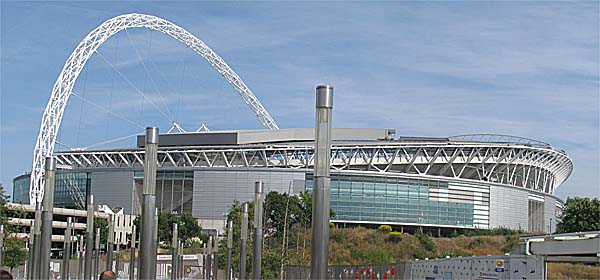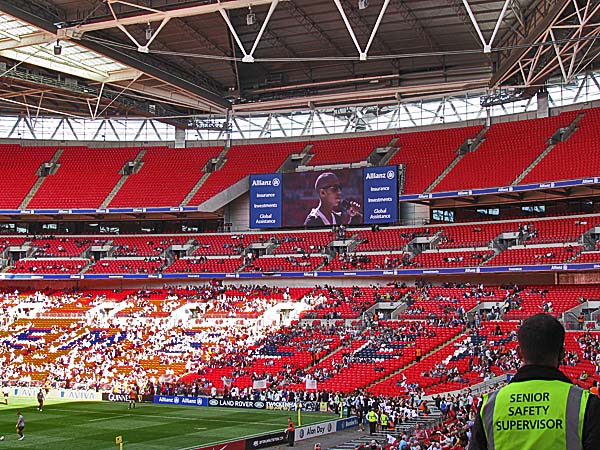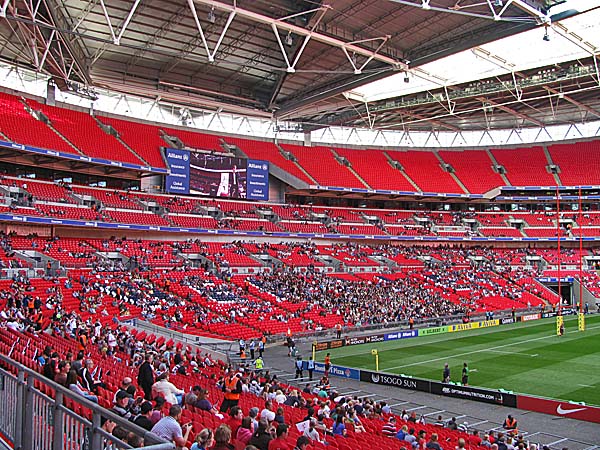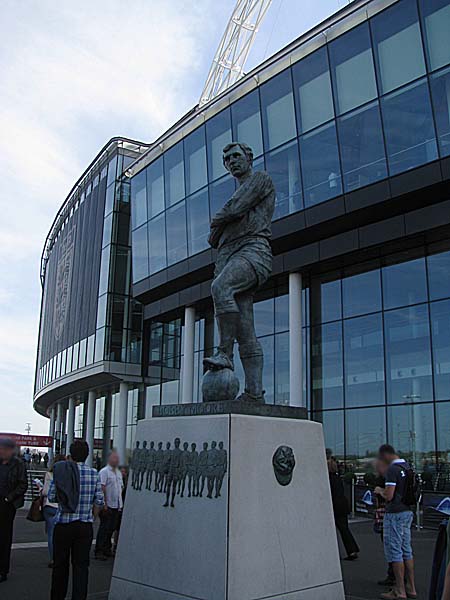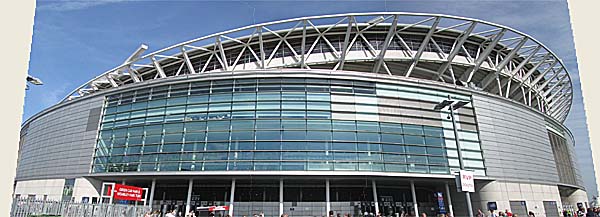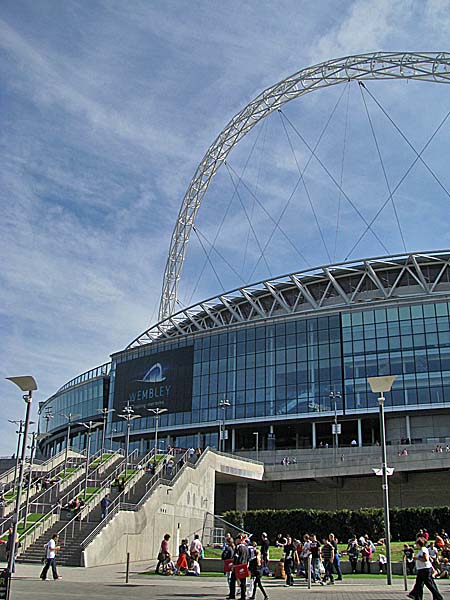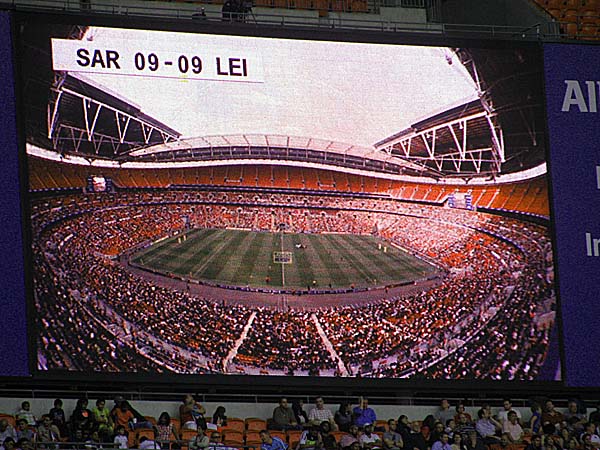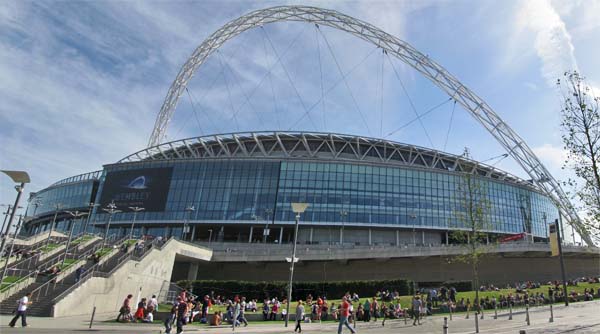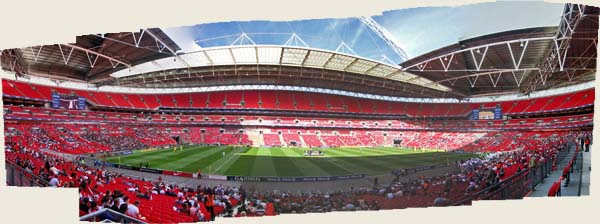| Architect |
Foster + Partners, Populous, Nathaniel Lichfield and Partners |
| Date
Built |
Opened 2007 |
| Location |
Wembley Park,
London |
| Description |
|
|
Wembley Stadium is the home of England's
national football team. The present
stadium, that opened in 2007, was built on
the site of the iconic original Wembley that
opened in 1923 as the Empire Stadium, part
of the British Empire Exhibition. The
original plan was apparently to demolish the
stadium after the exhibition but that didn't
happen, and in 1948 it became the stadium
for the London Olympics which were known as
the Austerity Olympics since it made use of
existing facilities in those difficult years
after the war. So, as Fosters + Partners say on their website, " ... the old Wembley Stadium was the most important sports and entertainment venue in Britain. The challenge in reinventing it for a new century was to build on that heritage and yet create a venue that would be memorable and magical in its own right." It appears that the design of the new stadium involved three architectural practices. Fosters + Partners with Ken Shuttleworth as a leading contributor, Populous designers of the London 2012 Olympic Stadium and Nathaniel Lichfield and Partners who are engaged in the design of the new Co-op HQ in Manchester. Fosters say that, "At almost four times the height of the original, covering twice the area, and with 90,000 seats, the new Wembley Stadium is the largest covered football stadium in the world." 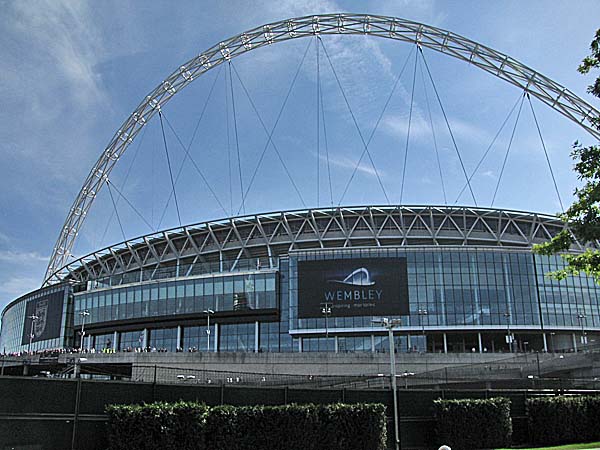 A distinctive feature of the stadium is the arch that soars 130 metres into the air. As Populous point out, "As well as being an icon, the wonder of modern architecture that is the arch supports the 7,000 tonne steel roof structure, eliminating the need for pillars. The seating is designed as a single bowl, which gives every spectator an unobstructed view of the stage or pitch, as well as increasing the intensity of the atmosphere. Retractable panels in the roof allow light and air onto the pitch, maintaining the quality of that hallowed turf." Inside the stadium every effort has been made to enhamce the experience for visitors. Fosters say that, " ... seats are larger than the old ones, with more leg-room; the highest tiers are easily accessed via escalators; and the concourse that wraps around the building provides catering for up to 40,000 spectators at any one time." |
|
